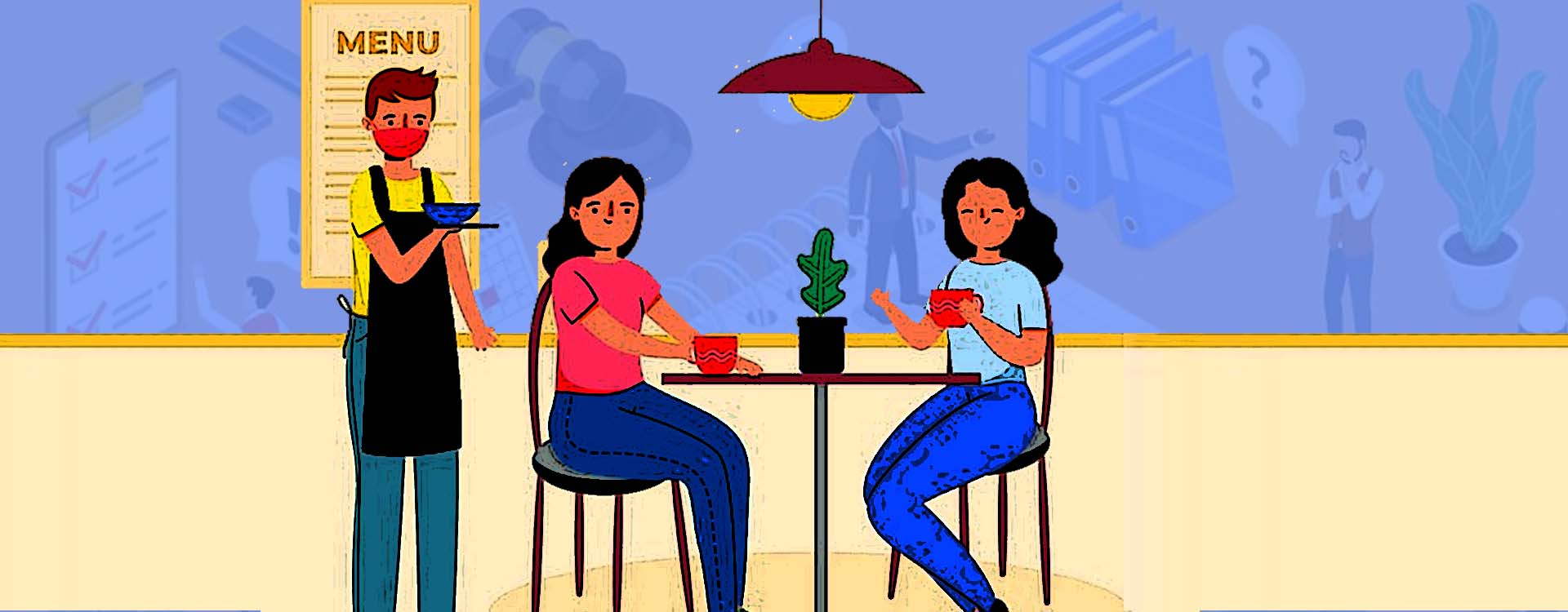A number of Restaurants and Food service start-ups have opened shop ever since the pandemic began. Which is surprising since national policy, regulatory and compliance guidelines are tightening their noose around existing food businesses.
Along with pre-opening inspections, restaurant businesses need to be prepared for surprise Covid safety compliance which can threaten to shut down their business at any time.
When it comes to canteen businesses, the only profitable way to stay open is by offering home delivery or takeaway of meals.
A major regulatory update has surfaced in New Delhi where Restaurants and Stores selling meat are now mandatorily required to mention the method of slaughter of the animal to customers.
This regulation is applicable for eateries, restaurants and street side shops with meat options on the menu.
‘‘
Along with pre-opening inspections, restaurant and food services businesses need to be prepared for surprise Covid safety compliance.
Standard Covid Compliance
The Covid compliance has been strictly mandated for restaurants right from the onset of the pandemic. All restaurants and food service businesses are required to adhere to them. Restaurants are mandatorily required to set up doorstep thermal screening for temperature checks, enforcing of a ‘no-mask-no-service’ policy, distancing of seating and wait spots in takeaway queues, availability of sanitisation at all times including handwash and alcohol hand rubs.
Government Compliance Guidelines for Restaurants
The central government released brand new compliance guidelines early this month specially for restaurants. As per the updates shared by the government, restaurants are expected to prioritise takeaways over all other food services. The government assigns least priority for restaurant businesses to provide in-house dining.
Food service start-ups will do well to avoid considering a full-fledged dining service at this time.
The compliance updates for food delivery operations mainly revolve around safety and hygiene practices. Food delivery services need to take all the safety precautions before commencing order-taking.
For restaurants and food services that do provide dine-in or self-servicing options, its mandated to replace the normal shareable menus with disposable ones to limit the number of hands it will exchange.
Small businesses need to think about how to offer contactless ordering services and how to turn payments into a completely cash-free experience.
What’s in it for me?
Since the restaurants and food services sector has been the most hard-hit, start-ups and small businesses need to exercise extra caution, especially this year. In most cities like Mumbai, civic bodies are extra vigilant and are showing no mercy in shutting down operational food businesses. Irrespective of the food service you’re offering, ensure that your customers are compliant at all times.
This is because your customers’ failure to adhere to norms can lead to your business being liable to pay hefty penalties.
The National Restaurant Association of India has been rooting heavily for food businesses to stay open. However, the Government of Maharashtra has issued a clear standard operation procedure (SOP) for restaurants. The Hotels and Restaurants Association has reached an agreement with the Government of Maharashtra to penalise restaurants that don’t follow norms. Restaurant start-ups will do well to comply.
BIS License required while applying for Food Safety and Standards Authority of India (FSSAI) license for manufacturing of Packaged Drinking Water (PDW) and Mineral Water (MW). All food business operators have to obtain license/registration before commencement of any food business.




